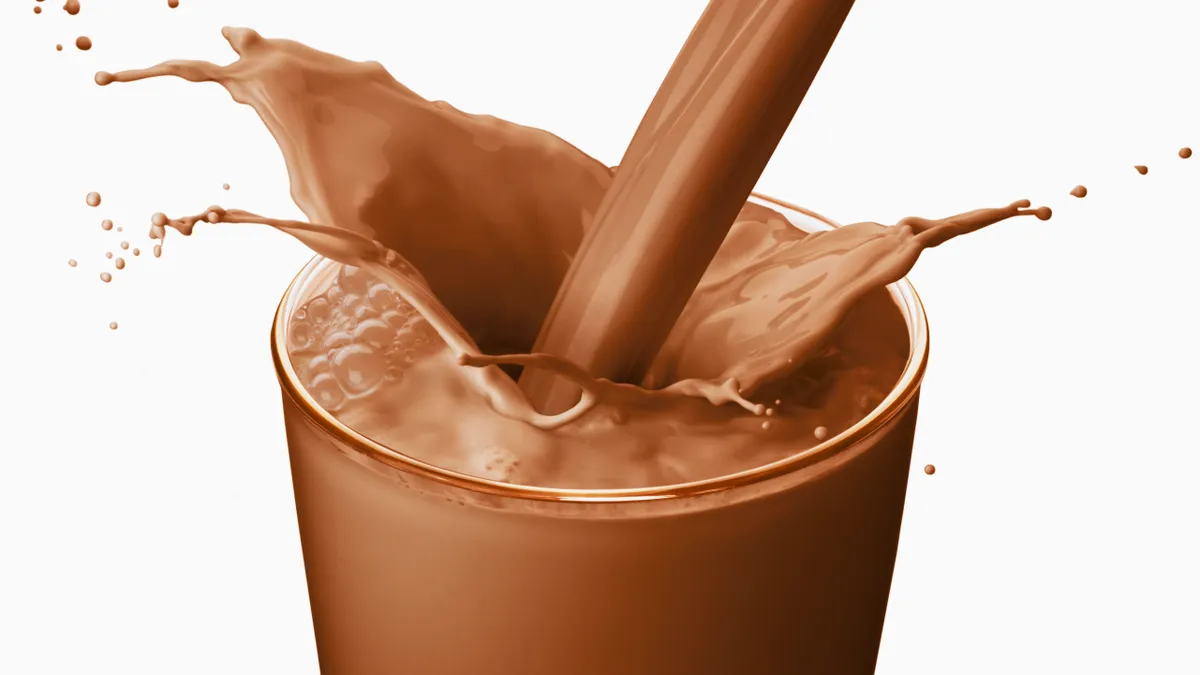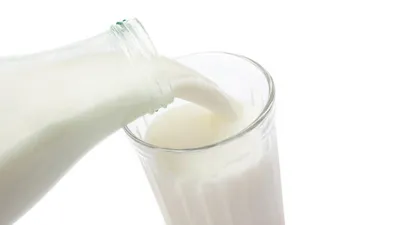When heart surgeon Shyam Kolvekar singled out butter and full-fat milk as contributors to the blocked arteries of UK youth in 2012, suggesting that up to 3,500 lives could be saved a year, many wrongly assumed he was saying milk was bad for you.
What he really said was that we should switch to low-fat products – margarine and low-fat milk. It’s a point that was reconfirmed by later research on how skimmed milk is still the cycling super drink.
“Our studies looked at the potential application of milk to the sports performer, with particular emphasis on endurance performance and recovery from strenuous exercise,” said sports nutritionist Dr Phil Watson from Loughborough University.
“The most striking outcome was the effectiveness of milk to restore fluid losses following exercise. This suggests that milk is indeed an ideal post-exercise recovery fluid, effectively replacing sweat losses incurred during exercise and replenishing the body’s carbohydrate stores.”
Topping up with carbohydrate directly after exercise is essential and ideally you should also aim to down some protein as this helps repair damaged muscle. As milk contains both it’s a good option post ride.
Although both low fat and whole milk provide the same electrolytes and minerals, low fat milk is often more palatable and thirst quenching. Also, the fat content of whole milk is more likely to lead to uncomfortable feelings of fullness (even for those who aren’t lactose intolerant).
Milk contains the protein that seems to suit muscle repair best
“The more energy-dense a solution, the more slowly it empties from the stomach,” says Dr Watson, “so skimmed milk is seen as less likely than whole milk to cause symptoms of gastrointestinal distress or bloating.”
Stuart Phillips, from the Exercise Metabolism Research Group at McMaster University in Ontario, Canada, also conducted research into milk consumption after resistance exercise, finding that drinking milk after exercise promotes better fluid retention than a traditional eight percent isotonic sports drink.
“Milk contains the protein that seems to suit muscle repair best. Its unique blend of casein and whey contain amino acids in a pattern similar to muscle protein,” says Phillips. “It also has other essential minerals and nutrients that our bodies need, so it’s a convenient package of nutrients and good for you.”
What's in milk?
100ml of skimmed milk contains:
- 35kcal energy: Measured in calories, it’s an essential aspect of being able to exercise.
- 1.7g protein: Helps the body to repair and strengthen muscles.
- 4.5g carbohydrate: Needed for energy; the more you ride, the more you need. Carbohydrate is stored in the liver and muscles as glycogen.
- 0.3g fat: Supplies some vitamins and essential fatty acids (EFAs). Too much can lead to clogging arteries and obesity.
- 22.5 percent RDA riboflavin: Helps maintain healthy membranes in your skin, eyes and nervous system. It also helps produce steroids and red blood cells.
- 20 percent RDA vitamin B12: Helps release energy from our food, make red blood cells and keep the nervous system healthy.
- 5 percent RDA vitamin C: Required for the growth and repair of tissues.
- 17.5 percent RDA calcium: Has been shown to decrease the accumulation of body fat and hasten weight loss during energy restriction.
Are there any milk alternatives?
Unfortunately, if you're lactose intolerant, dairy milk won’t agree with you and the soy milk you might drink instead doesn’t seem to be quite as good.
“Soy drinks that try to mimic milk do nowhere near as well as milk because the protein is entirely different and the nutrients are simply thrown together to create a drink,” says Stuart Phillips of McMaster University. “Our data shows that soy protein is inferior to milk in promoting muscle accretion and muscle protein synthesis.”

But if it’s just the taste of milk you don’t like, then there’s good news, because a study carried out in 2013 claimed that chocolate flavoured milk is even better for you! The study, carried out on 13 university football players, found that players who had been drinking chocolate milk had lower levels of the chemical creatine kinase, which is a sign of muscle breakdown.
